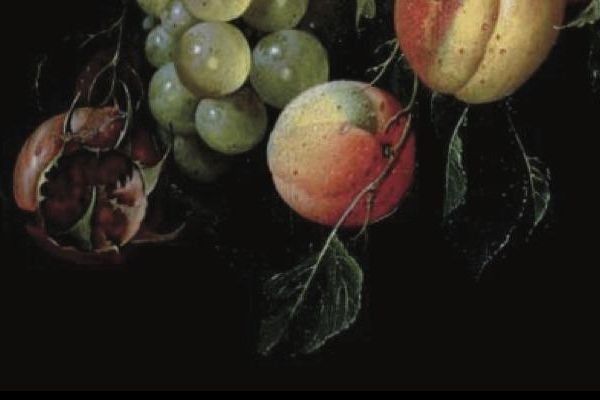A line from Lisa Taddeo’s Three Women stood out for me: ‘women are better at endings than beginnings.’ It was a remark bound up in its own cleverness, purporting to a universal truth, but not wholly believing itself. Nevertheless, it got me thinking. It could be a reference to a certain passivity of women at the beginning of relationships, not necessarily true, but told to us via culture again and again. Stories of women waiting to be asked out, to be kissed, to be proposed to. Indeed, Taddeo – whose book focuses on women she interviewed over many years about their desires and intimate relationships – has been criticised for its choice of stories. All three belong to heterosexual women and are characterised by a certain submission, disempowerment and sexual despair. Shannon Keating’s BuzzFeed article ‘Are straight women ok?’ is a good example of this criticism. But the book is best read as a set of themes and experiences to consider, to spend time in, and not as generally representative of women’s desires.
Taddeo starts the book writing about her mother and, as I read, I reflected on my own mother’s experience of love. In terms of intimate partnerships, my mum has had two beginnings, two middles and two endings. Sitting in the garden next to her DIY planter boxes full of salad greens and beetroot, she told me the other day that she has only ever slept with two people. One was a man, my father, and the other a woman. She thought there was a nice balance in that. We laughed that she had better not get cosy with anyone else. If my mum desires another romantic relationship, she doesn’t admit it.
Two of the women in Three Women have children, although they are barely present in the narrative. They cannot coexist with the fervent, propulsive, endlessly-desiring nature of the women’s stories. Only Lina’s small boy is present with any substance. He is cherubic and blond in public, whiny at home. Lina is an attentive mother. She is described waiting with her boy in the warm kitchen, in her large and alienating house, for biscuits to bake. But her desire does not exist in the same reality as her child, who is entirely erased in the passages where she sucks the filling of a crème egg from her lover’s penis or texts desperately and agonisingly, over the course of days, to arrange a half-hour triste in the woods. Similarly, it is hard for adults who are also, necessarily, someone’s child, to comprehend their parents as desiring beings.
*
My mum met my father in Coventry, England. It was the mid-seventies and Mum was at university. She smoked endless cigarettes, had not yet entirely given up wearing skirts and dresses but was more often dressed in a pair of flared jeans and a corduroy jacket. Tall and broad shouldered, she had doe-like hazel eyes and downy hair. She was in love with one of her girlfriends – something she only admitted to herself years later. At a party, she snogged her crush’s boyfriend, proceeded to feel terribly guilty and starved herself for five days until she fainted in the library. She struggled with her weight and hated her breasts, which are impressively large and frequently commented on. Her calves are also impressive and, since she took up cycling in her fifties, they have been remarked upon by many a passing driver for their musculature.
In Sheffield, Mum’s housemate was also her best friend. That best friend met an Australian surfer she would later marry. Mum and her best friend found another housemate, who would become my dad. These two couples would move to Australia, produce two children each and spend every summer holiday together for over a decade. My dad was a few years older than the others and, unlike them, he didn’t go to university. He had a job as a technician and it paid well. He owned a car and had already been married and divorced once. Totted up, these details may have made him sound mature to my mum. Or maybe, maturely immature: a man who had lived, not particularly well, but had proved he had done some things and had some money to show for it. He was also quiet, unfailingly kind and unassuming.
Later, when my parents were living in Australia and us kids were aged ten and thirteen, my mother embarked on an affair with a woman who was an international student living with the family. When he found out, my dad suggested they invite her lover into the bedroom. He said he always knew my mother had questions about her sexuality. It was not apparent to any of those involved, whether this suggestion was motivated by generosity, fear of losing my mother or sexual curiosity. The suggestion was accepted, but it didn’t change anything. My mother was in love and she decided to end the marriage.
Her girlfriend wanted to be a singer-songwriter. She played the guitar and had a beautiful singing voice. She dressed like a member of a K-pop band in distressed jeans, tight t-shirts and a baseball cap. Every morning she gelled her hair with Garnier Fructis. It turned her short black hair into many thick, stiff spikes and smelled sweetly of slightly fermented fruits. Both she and my mum adored George Michael, KD Lang and Sade.
Leaving my dad was an ending and a beginning. Mum was not afforded the luxury of even a deep breath. She followed her lover, children in tow, from Sydney to Perth. She didn’t know yet that her girlfriend’s liking for beer was alcoholism, that on those alcohol-fuelled binges her girlfriend would call her fat and stupid. Her girlfriend would insist on keeping their relationship a secret and when friends visited the house and wondered where her girlfriend slept my mum would tell them, ludicrously, that she slept on a fold-out bed in the walk-in wardrobe. Mum didn’t know her girlfriend would hit her and push her, would smash mirrors, and that Mum would spend many nights sleeping in the car or walking the streets just to be out of the house.
*
Sitting in the garden, I talked to Mum about all of this. She ended the relationship over a decade ago but it lingers on in an email exchange every couple of years. Her ex-girlfriend writes to say her father has suicided. She writes again to say her partner has left her. A few years pass, she writes to say she is working on her issues and is thinking of joining a monastery. Mum controls her own responses. She will not allow herself to be drawn in again.
Mum was lucky in some respects. She was never in fear for her life. She didn’t need a safety plan to leave the relationship. She did need the support of friends to finally say enough was enough. Mum never thought her ex-girlfriend would hurt me or my sister. This was what she wanted to emphasise when I talked to her. She said that was why she could stay for as long as she did. Still desperately waiting, I imagine, for her desires to be realised.
How could Mum have rejected what the beginning offered? She missed out on other opportunities, she never fell into a group of friends who might have helped her to explore and accept her sexuality. She had to wait for the clarion call that was an alcoholic student with spiky hair and immaculately clean trainers. A call that sought her out in suburban Sydney where she lived, in relative contentment, with a husband she never argued with and two children. I don’t believe she had a choice but to say yes to what was offered when it was offered, and to end it, when it was ended.
*
I listened to Taddeo on a Wheeler Centre podcast. She talked about why she became interested in women’s desires. She said that, as she was scoping for her book and talking with many men and women, she found that at the conclusion of sex and intimate moments, the women were already anticipating the next encounter in a way the men she spoke to weren’t. I’m not sure about these binary terms, and Taddeo herself was cautious when she spoke about ‘men’ and ‘women’ in broad strokes. In any case, the three women’s stories were the ones Taddeo felt compelled to write and explore. Each story is flavoured with that groping sense of endings soaked in anticipation of the next beginning. This speaks to me of both dissatisfaction and adventure. Desire cannot be fulfilled, that is the point. It shifts, it does not hold a shape. We all submit in intimacy, although we must continue to problematise the particular ways in which women submit. Sexual expression is political, but an individual is unlikely to change their most intimate self because of an explicit politics. Judgements are unhelpful here.
We can hold an idea in our minds, such as the statement ‘women are better at endings than they are at beginnings’, explore it, see what it offers, before letting it go. Just as we can hold desire before it scatters and reforms. We can take pleasure from a particular mode of submission until it no longer serves us. Endings well up from deep within, called up by who knows what, and arriving at who can guess what time. In Taddeo’s talk, she was pleased to say the book has helped one of the women, Maggie, move past what happened to her. Lina has moved on from her lover. Apparently, Lina barely read the drafts that Taddeo sent to her. For Lina, talking about her experiences was enough, perhaps it was her form of journaling, of setting aside. The third woman continues to hold her position as an enviable, successful, formidable woman within her community. The book ends where the women’s lives continue.
Image: a detail from the cover of Three Women



